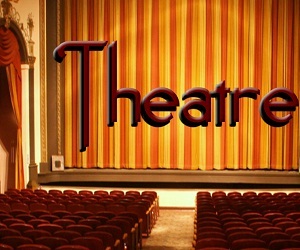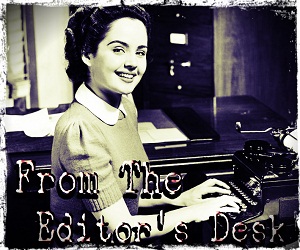New York City is host to two concurrently running productions of Shakespeare’s Macbeth this Spring: Aquila Theatre‘s presentation at the Gym at Judson (April 18th – May 6th), and Epic Theatre Ensemble‘s interpretation at the 47th Street Theatre (April 20 – May 26th). A stable of many a theatrical company’s portfolio, apart from its matchless, vivid language, Macbeth as drama has much to attract aspiring ensembles, not least the challenge presented in portraying two of Shakespeare’s most unsympathetic lead roles. We watch as Macbeth and his wife are enticed into evil by the lure of power and then, as good stage villains, are punished for their crimes. The trick, however, is in making them into more than stage villains, for in that resides the case for tragedy and its capacity to ennoble human existence. It is a tricky bit of the equation as both of these productions can testify.
Aquila Theatre is devoted to the classics of western theatre, in restating their claim to preeminence as timeless pieces, triumphs of human artistry and culture. As such they tend toward language focused productions that are light on the use of contemporary stagecraft elaborations. For their Macbeth Desiree Sanchez wears both directorial and production designer hats. She is spare in her approach. A minimum of props are deployed in the expansive and lofty space Judson’s Gym theatre offers. There is an economy and subtlety at work in the way she groups the action about the squared arena. An innovative, momentary introductory prelude scene which highlights a blood-soaked, battle worn Macbeth in one corner, and a bereft Lady Macbeth on bloodied bed sheets following unsuccessful labor in the opposite corner, acts as a startling, punched signature of this director’s suggestion for the fatal couple’s motivations. The Macbeths are traumatized people, destabilized, estranged, in search of a project into which they can pour themselves, erase the past, and reunite. This prelude dispatched in an instant, there is little other tinkering with the body of the play and all unfolds to order.
The performances are vigorous, emotive, well spoken and, most importantly, psychologically grounded. If you have an ear for Shakespeare this is a wonderful production to hear his words delivered eloquently and with conviction. Rebecca Reaney as Lady Mabeth is nuanced and bold, spectacularly benefiting from Peter Meineck‘s well-judged lighting, which is at once lavishly theatrical and self-disciplined. Guy Oliver-Watts, working to uncover an aspect of post traumatic stress disorder in the role of Macbeth, has a more complex part. He is thoroughly convincing, but in so doing projects a weakened, dependent quality in the man who would be king and, strangely, this deflates the character somewhat, puncturing the fullness of the play’s tragic reach. He is doing well what he has been directed to do but herein lies the rub, and a very fine rub it is for the measure of what might be deemed tragic theatre. The rest of the cast are for the most part assured in their roles, with Peter F. Gardiner, (Banquo), James Lavender (Macduff), and Rachel Barrington (Lady Macduff) especially commendable.
Coincidentally the notion that the Macbeths, and especially Lady Macbeth, are grieving former parents, is made central in Epic Theatre’s version of the play. This idea is evident in the presence on stage of a small shrine with a framed photograph of a toddler, to which Lady Macbeth touchingly returns for some of her scenes. Also, it is manifest in the large projected photo image of the Macbeths, tenderly converging about a drowsy infant, which is thrown up on the broken surface of the rear wall. This projection is relentless, hanging like a grey cloud above the proceedings, at once lugubrious and sentimental. Interpretation, with a capital I, is the strategy of this production. Set in a more contemporary world, we are treated to off-stage electronic voices in ear pieces, and a video screen displaying action elsewhere. The Weird Sisters are a heterogeneous mix of sexes and ethnicities, and hang about the stage throughout the action on overhead ladders and walkways, like jaded demi-gods, stonily unmoved by the unfolding drama below. Innovation appears one of director Ron Russell‘s chief concerns with his production. In the banquet scene where a guilty Macbeth is plagued with visions of the murdered Banquo, the bloodied apparition is suddenly encountered in a dance embrace by the newly crowned king. This shift works dramatically, as do some of the other re-imaginings. Richard Easton as Duncan, hailing from the video monitor, is a treat as a telegenic royal talking head, at once hammy and calculating. However, a growing awareness dawns as it becomes plain that Russell as director, engaged with innovation it seems for innovation’s sake, completely loses the plot in the finest sense. This might have been more immediately evident if I had read the production’s publicity notes which describe the play as “a brutal and darkly funny exploration of the banality of evil.” Really? Macbeth? Funny? If the line had been offered by Mel Brooks I might have taken closer note, but otherwise it seems merely, but utterly, wrong-headed. And how wrong-headed becomes dismayingly clear in due course as Russell stokes up moments of sour humor (one of the witches sings her lines in a borrowed tutu as a karaoke turn) and rubbishes any solemnity. It’s as if the idea of theatrical tragedy is unknown to him. The most damaging turn occurs amidst some rapid fire scene shifts toward the conclusion which require one actor to change swiftly between two characters. This is done on stage by the actor (James Wallert) taping and un-taping a fringe of hair to his brow to distinguish between roles. In the duration a cry is heard off stage. Jumping from left to right, Wallert, fringed one moment, un-fringed the next, delivers the news of Lady Macbeth’s death. It is, richly, a Mel Brooks moment, and there was more than one chuckle in the audience.
Can Russell actually hear the language Shakespeare is putting in his characters’ mouths? The evidence is scarce and the actors suffer from the inability to sound as if they mean their words. Who is to blame them if the director has no feeling for the real emotion of the play? Apart from Easton in the role of Duncan, and Julian Rozzell, Jr. (with presence to burn) as one of the witches, everyone seems merely focused on unburdening themselves as rapidly and succinctly as possible of their Shakespearean metre. Russell is not the director who can marry them to their lines. As Macbeth, Ty Jones actually commences the soliloquy – “Is this a dagger I see before me?” – with his back to the audience. No chance here for an actor to convey facially the extremity of the moment. Russell, it seems, is not interested in psychological subtleties (witness the never-changing backdrop projection) merely the chance of creating something different. Well sad to say, something different definitely this way comes, but you’ll be lucky if the pricking you feel is confined to your thumbs.







{ 0 comments… add one now }